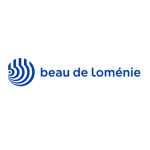In France, a prior right holder cannot oppose a trade mark based on bad faith.
A nullity action on the basis of bad faith can be brought in court. Bad faith is a general course of action which is not specifically detailed in the French Intellectual Property Code. The rule "bad faith corrupts everything" means that one can always bring an action in court against bad faith behaviour and therefore against any trade mark filed in bad faith.
Bad faith also has an impact on prescription. The holder of a prior right may bring a nullity action against a trade mark based on relative grounds. However, the five years acquiescence rule does not apply when the trade mark was filed in bad faith. The same rule applies in cases of infringement.
In addition, the five year prescription for invalidity actions concerning well-known trade marks (Article 6bis of the Paris Convention) does not apply in cases of bad faith. As a result, when an application is filed in bad faith, the action of the prior right holder cannot be prescribed.
Article 5(4)(c) of EU Directive 2436/2015 states: "Any Member State may provide that a trade mark is not to be registered, or, if registered, is liable to be declared invalid where, and to the extent that the trade mark is liable to be confused with an earlier trade mark protected abroad, provided that, at the date of the application, the applicant was acting in bad faith." This Directive must be implemented in France no later than January 14 2019.
There is no information for the moment as to whether an action will be introduced in France. However, if bad faith can be proved in French territory, there is a ground for action in court. Finally, there is, up to now, no information about how nullity actions filed before the Office will be dealt with in France.
Aurélia Marie |
Cabinet Beau de Loménie
158, rue de l’Université
F - 75340 Paris Cedex 07 France
Tel: +33 1 44 18 89 00
Fax: +33 1 44 18 04 23











